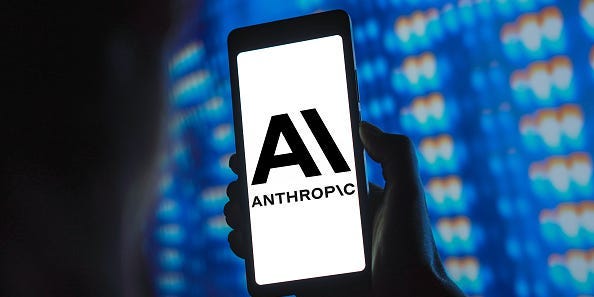Anthropic says it is close to supporting California’s AI bill after lawmakers make amendments. Here’s what changed.
AI company Anthropic is now supporting a controversial bill known as SB 1047, which would regulate AI in California.
In a letter sent to California Gov. Gavin Newsom, CEO of Anthropic, Dario Amodei, said “the benefits of the bill may outweigh the costs.” However, he added that “we are not sure about this, and there are still other parts of the bill that seem to affect or are not clear to us.”
Anthropic’s cautious approval comes just a month after the company proposed a series of amendments to SB 1047 – which was first introduced in the state legislature by Sen. Scott Wiener in February.
In a letter sent to government leaders in July, Anthropic called for a greater focus on preventing companies from creating unsafe models rather than enforcing stricter regulations before disasters occur. It also recommended that companies be able to set their own safety inspection standards instead of following government-imposed regulations.
The revised version of the bill published on August 19 includes several changes. First, it reduces the scope of civil penalties for crimes that do not cause harm or imminent harm, according to a post by Nathan Calvin, senior policy advisor at the AI Safety Action Fund, a co-sponsor of the bill. and. has been working with Anthropic since the bill was first introduced.
There are also some important language changes. Where the bill originally required companies to show “reasonable assurance” against potential risks, it now requires them to show “reasonable care,” which “helps clarify the objective of the bill on assessment and risk reduction,” according to Calvin. It’s also “the most common standard found in torts,” he wrote.
The revised version also relegated the new government agency that would enforce AI regulations, formerly the Frontier Model Division, to a board known as the Board of Frontier Models and placed it in ‘a Government Action Center that already exists. The board now has nine members instead of five. However, with that, the reporting requirements on companies have also increased. Companies must release safety reports publicly and send unredacted versions to the state attorney general.
The revised bill removes the penalty for perjury, thereby eliminating all criminal liability for companies and imposing only civil liability. Companies must now submit “compliance reports” to the attorney general instead of “compliance certificates” to the Frontier Model Division.
Amodei said the bill now “appears to us to be somewhere between our proposed version and the original bill.” The benefits of creating publicly available safety and security protocols, minimizing risks, and forcing companies to seriously question the risks of their technologies will “significantly improve” the industry’s ability to fight threats.
Anthropic bills itself as a “security and research company” and has won nearly $4 billion in funding from Amazon. In 2021, a group of former OpenAI employees, including Dario Amodei and his sister Daniela, started the company because they believe that AI will have a huge impact on the world and want to create a the company will ensure that it is in line with human values.
Wiener was “very happy to see the kind of detailed commitment that Anthropic has brought to his support if the letter is changed,” Calvin told Business Insider. “I really hope this encourages companies others to also actively participate and try to talk to some of this in an unequivocal way and to realize that this kind of false trade-off between innovation and safety will not be in the long run of this industry. .”
Other companies that will be affected by the new law have been more reluctant. OpenAI sent a letter this week to California state leaders opposing the bill. One of its concerns is that the new regulations will push AI companies out of California. Meta also argued that the bill “actively discourages the release of open source AI.”
